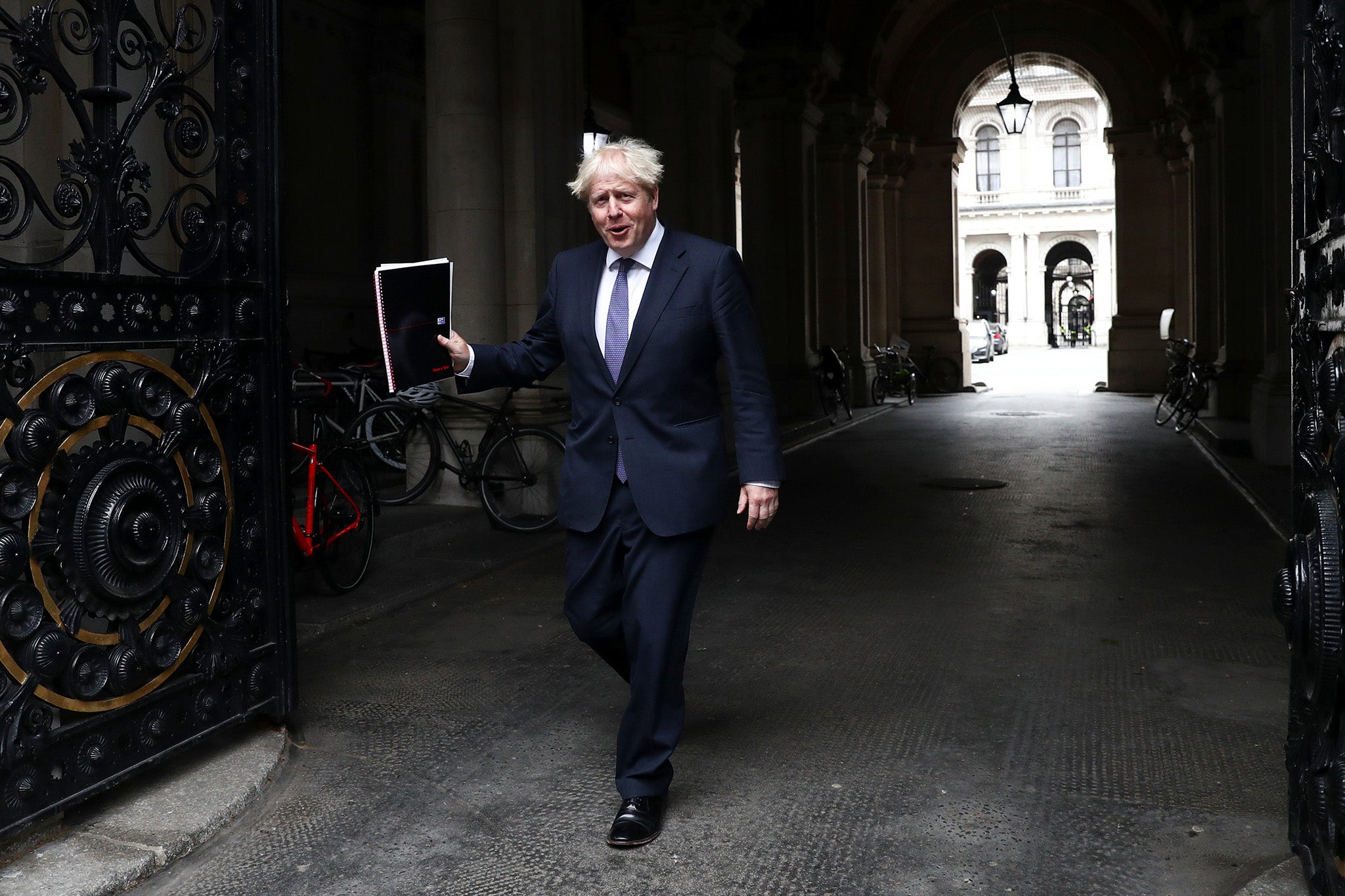Boris Johnson is setting fire to Britain’s legal credibility
The PM is playing a dangerous game by breaking international law, writes John Rentoul


The resignation of Jonathan Jones was one of those clarifying moments. Until it happened, it was just about possible for ministers to argue that people had misunderstood their intentions in the bill to be published today. Just tidying up loose ends, said George Eustice, the cabinet minister sent out to defend the latest example of government by outrage.
Nothing to do with repudiating an international treaty, said the prime minister’s spokesperson, just “clarifying” a few “unforeseen” ambiguities in the EU withdrawal agreement. That attempt by one half of the government machine to play down the fuss caused by the other half was blown up by Jones’s resignation as the government’s top lawyer.
You don’t need to understand the detailed points of law to realise that if the Treasury solicitor, who is also the civil servant at the head of the Government Legal Department, apparently resigns over it, it must be important.
So there was more interest than usual when Brandon Lewis, the Northern Ireland secretary, was brought to the House of Commons yesterday to explain it. To start with, he played dead. He curled up in a ball on the government front bench and stayed there, refusing to react to being prodded. Louise Haigh, one of Keir Starmer’s better new shadow cabinet ministers, quoted Margaret Thatcher at him: “Britain does not renounce treaties.”
He failed to rise to that provocation; he said she should wait to see the legislation; added that he couldn’t comment on the details of the Treasury solicitor’s resignation; and that the government continued to work “at pace” with the EU in the joint committee established to oversee the withdrawal agreement.
He curled up a little tighter when Theresa May asked witheringly (she does a good withering): “How can the government reassure future international partners that the UK can be trusted to abide by the legal obligations of the agreements it signs?” He replied that the government had to legislate to give businesses certainty after the expiry of the Brexit transition period, in case the UK and EU couldn’t agree on the implementation of the withdrawal agreement.
All quite interesting in the way that boring legal technicalities can be. But still dull. Then Sir Robert Neill, the Tory backbencher, asked for reassurance that the government did not actually intend to break international law. Lewis’s answer was another clarifying moment. He looked down and read it out. It was quite deliberate: “Yes, this does break international law in a very specific and limited way. We are taking the power to dis-apply the EU concept of direct effect required by Article 4 in certain very tightly defined circumstances.”
It is not every day that a minister stands up in the Commons and announces that the government intends to break international law – something the ministerial code requires them not to do and minutes after declaring: “We as a country stand for international law and the ordered international system; we always will.”
So yes, this is a big deal, and everyone can see that it is a big deal even if they do not understand exit summary declarations – the bits of paper that Boris Johnson told Northern Irish business people during the election campaign they should “put in the bin”, even though he had signed an international treaty (the withdrawal agreement) that required them.
Instead of admitting he had signed a treaty without understanding it, it seems the prime minister has decided to set fire to Britain’s international legal credibility in order to rally his Brexit supporters in the Conservative Party and in the country. He did it last year by proroguing parliament and threatening to disobey the law requiring him to ask for a Brexit extension. But he didn’t actually break any laws – this time might be different.
This is Trumpian populism and a dangerous game. How can Johnson with any credibility condemn Vladimir Putin for using novichok to poison political opponents if he won’t abide by international treaties himself?
Trumpian populism poses dangers for its opponents too. Keir Starmer is already backing away from anything that reminds people he tried to overturn the Brexit referendum; and on this he may also be frightened of his legal shadow. He may hold back from condemning the prime minister for his recklessness for fear of having “Remainer lawyer” thrown at him again.
He should not do so. If it is important enough for Jonathan Jones to apparently resign over, it is important enough for the opposition to stand up for the rule of law.




Join our commenting forum
Join thought-provoking conversations, follow other Independent readers and see their replies
Comments